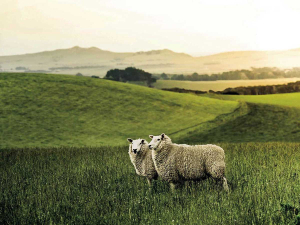China’s new beef tariffs expected to favour New Zealand exporters
Additional tariffs introduced by the Chinese Government last month on beef imports should favour New Zealand farmers and exporters.
 Managing Director of Prism, Matt Lythe, says the company will help primary producers face up to critical challenges such as developing diversified revenue streams, adjusting to changing climatic conditions, meeting emissions targets, and responding to changing buyer behaviour.
Managing Director of Prism, Matt Lythe, says the company will help primary producers face up to critical challenges such as developing diversified revenue streams, adjusting to changing climatic conditions, meeting emissions targets, and responding to changing buyer behaviour.
A new technology company has been formed which will help New Zealand’s farmers and primary sector better understand and capitalise on their natural vegetation and biodiversity.
Wellington-based Lynker Analytics has teamed up with red meat exporter and marketer, Silver Fern Farms Ltd, to form a new joint venture called Prism Earth Ltd (Prism).
Managing Director of Prism, Matt Lythe, says the company will help primary producers face up to critical challenges such as developing diversified revenue streams, adjusting to changing climatic conditions, meeting emissions targets, and responding to changing buyer behaviour.
“Prism delivers an integrated set of capabilities including carbon and biodiversity mapping, climate risk analysis, and farm-scale land use simulation to help farmers understand, budget for, and adapt to climate and biodiversity challenges and opportunities,” says Lythe.
“We’ll build on the technology developed by Lynker Analytics, including the award-winning Net Carbon Zero Mapping System which uses remote sensing and artificial intelligence to map, classify and age woody vegetation on grazing land at sub-hectare scales,” he says.
Alongside artificial intelligence (AI), Prism also uses sensor data, geospatial analytics and visualisation software to deliver their services.
Lythe says that Prism will not only support primary producers to realise the potential from their on-farm vegetation and biodiversity, but also help them to prepare for the impacts of climate change and increasing trade and market requirements.
“Future climate has the potential to drive major shifts in land use. These impacts won’t be distributed equally, and the level of adaptation needed will depend on location, land use, and exposure of the farm,” says Lythe.
“As previously suitable climatic conditions change, it is likely that pasture yields will shift and summer water demands will increase. Nitrate leaching could also be more variable, erosion rates can increase, and increasing heat stress could affect animal welfare and milk production from dairy cows.
“We’re also seeing growing global requirements on a range of sustainability measures, through which trusted and verifiable data will play a key role in supporting farmers to navigate market access and realise the opportunities available,” he says.
As well as AI-enabled mapping of carbon (woody vegetation), deforestation, erosion, and invasive plants such as Nassella and Gorse/broom, Prism will work extensively with catchment groups to model science-based long term land use adaptation in economic, environmental, social, and cultural terms. This work will commence at Arai Te Uru Awa, a 23,000ha hill country catchment 10km southwest of Gisborne.
Prism will be headquartered in Wellington and is powered by Lynker Analytics who will continue to develop and deliver AI solutions to a wide range of environmental challenges.
New Zealand's new Special Agricultural Trade Envoy, Horowhenua dairy farmer, company director and former Minister of Agriculture, Nathan Guy says the Free Trade Agreement (FTA) with India is a good deal for the country.
New figures show dairy farmers are not only holding on to their international workforce, but are also supporting those staff to step into higher-skilled roles on farm.
New tractor deliveries for 2025 jumped 10% compared to the previous year, a reflection of the positive primary sector outlook, according to the Tractor and Machinery Association (TAMA).
Entries have opened for two awards in the New Zealand Dairy Industry Awards (NZDIA) programme, aimed at helping young farmers progress to farm ownership.
Federated Farmers has confirmed interim chief executive Mike Siermans to the role.
Registrations are now open for the 2026 Ruralco Golf Classic, with all proceeds from the event set to support the Mid Canterbury Rural Support Trust.

OPINION: If the hand-wringing, cravat and bow-tie wearing commentariat of a left-leaning persuasion had any influence on global markets, we'd…
OPINION: With Winston Peters playing politics with the PM's Indian FTA, all eyes will be on Labour who have the…